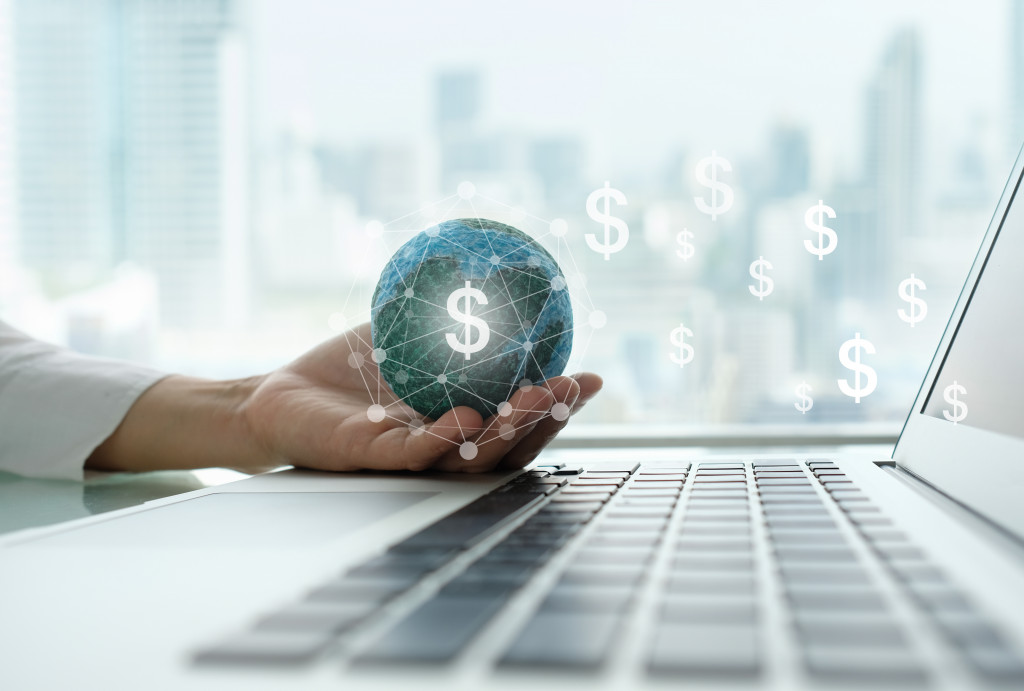A lot of people ask if they should start investing first or start an emergency fund. In investing, time is of the essence. So, in theory, it’s good to start investing as soon as possible.
But say a person invested in stocks without a safety fund and encountered an emergency a few months after the pandemic started. The money that this person had on hand wasn’t enough to cover emergency expenses. And as a result, they had to pull out their money from their investment at a loss. In the end, the person didn’t earn anything from their investment since they couldn’t wait for stocks to go back up. If they had an emergency fund, things would have been different.
This situation may be too specific. But it is possible. And based on that scenario, you will want to secure an emergency fund first before you invest. While having cash for a rainy day should be common sense, not everyone has the luxury to save up when they’re already living paycheck to paycheck. In fact, 25% of Americans don’t have an emergency fund.
If you don’t have an emergency fund right now, take this as a sign to start one. Here are some steps you can take:
Set the Amount
Usually, the rule of thumb is to save three to six times your monthly expenses. The amount will depend on your living situation. For example, if you live alone and only need to save money for yourself, starting with a three-month emergency fund may be enough. But if you’re saving up for an entire family, saving at least six months’ worth of emergency funds is ideal.
Determine Your Own Terms and Conditions
Once you’ve finalized the amount, consider setting your own terms and conditions for your fund. For instance, write all the situations where you’re allowed to use some money from your emergency fund. Some of these situations may include home repairs, unemployment, medical bills, and so on.
It might also be helpful to make a list of prohibitions or situations where you can’t use your emergency fund. This additional list will help you control yourself and keep your money intact for an actual unexpected expense.
Determine Your Fund Location
You also need to consider where you will put your emergency fund. Make sure that you put it somewhere where you won’t be tempted to spend the money for something else, but it’s still easily accessible in case an emergency arises.
One option is to put your money in a high-yielding savings account. It will give you a higher interest rate so that your money can grow through compounding interest. With this feature, you might also want to open another one when you start saving for your own retirement. But you’ll want to check with a retirement planner to learn more about that.
You can also leave part of your emergency fund in a concealed location in your home. This might seem risky. But remember that one key in an emergency fund is accessibility. Just make sure you have self-control and don’t forget where you placed the money.

Automate Your Savings
Consider automating your savings to ensure that you put aside money for your emergency fund every month. Decide on a monthly amount and automate your transfer from your checking account to your savings account. This automation will help you build your fund quickly.
Declutter and Sell
You can build another source of money, aside from your monthly salary, to create an emergency fund. Consider decluttering your home and selling some items that are still in good condition. The benefit of this process is that you hit two birds with one stone. You not only earn money; you also get to clean your home.
Keep the Change
Sometimes, you may choose not to accept change anymore when you pay using cash. Sure, carrying coins may seem inconvenient and unnecessary. But think about how much you might have lost by not accepting change several times in a month. In saving, every dollar counts, or in this case, every coin counts. If having a lot of coins is too bothersome for you, you can have them exchanged for bills in a bank, or you can just deposit them into your savings account.
An emergency fund will serve as your safety net. It can help you achieve your other financial goals and stay afloat in unpredictable situations. Building it may take time, especially if you’re balancing expenses and debt payments. But in the end, the wait is worth it. Having an emergency fund can kick-start your life of financial security.

